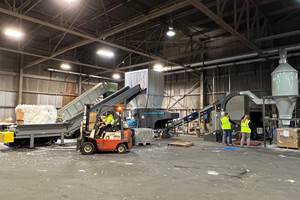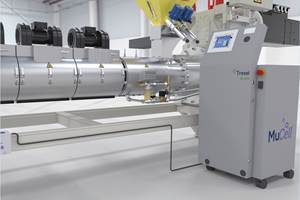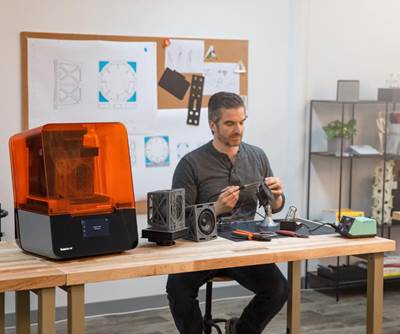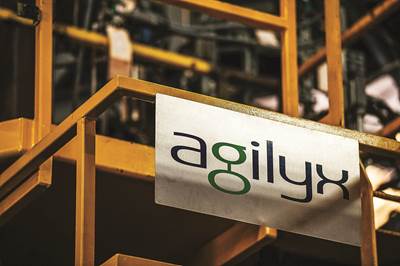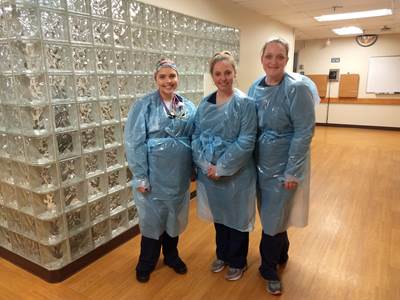Agilyx: Recycling Must Continue Operating During the Coronavirus Pandemic
Agilyx CEO Joe Vaillancourt discusses the status of the company's operations and the importance of recycling during the COVID-19 pandemic.
There’s so much to think and worry about when it comes to COVID-19. And through all the concern about adequate hand washing, staying at least 6-ft from people, obtaining cloth face masks, etc.—I kept wondering about recycling. Specifically, will recycling continue during the coronavirus pandemic?
Right now, that answer is complicated. Major cities say they will continue curbside pickup, however, smaller municipalities are putting a pause on services as outlined in this Bloomberg article.
On March 27, the Association of Plastics Recyclers (APR) wrote that the U.S. Department of Homeland Security issued federal guidance on the essential critical infrastructure workforce. Under that guidance and, in compliance with state directives, APR members are committed to continuing operations and providing essential services to their communities and to the country.
“America’s recycling infrastructure is a critical component in the battle against COVID-19, providing the resources we need to fight the virus and preserving the economy while protecting the environment,” they wrote.
I checked in with Agilyx, an innovative chemical recycling company. Agilyx's technology can recycle plastics back to their basic molecular components to be used again and again. CEO Joe Vaillancourt talked with me about how the company continues to operate; some market impacts and why recycling is vital.
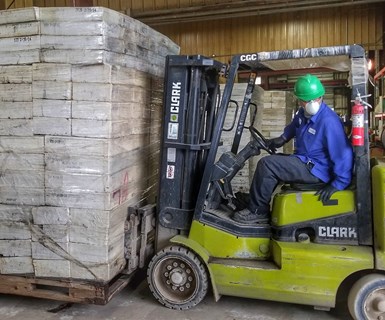
Agilyx employee processing material.
Continued Operations
Vaillancourt said as they produce recycled content for its industrial partners Americas Styrenics and Ineos Styrolution, they’re considered an essential chemical recycling business.
“So we continue to operate,” he said. “We, just like the rest of the essential businesses are a bit at the mercy of the actual illness—our technology is one that is fairly specialized and we have teams trained in operating the facility but, of course, if we run into illness, it would impact our ability to operate. So far we’ve been lucky; we’re still operating. We’re certainly impacted potentially by our downstream partners. So if our downstream partners stopped operating for whatever reason, then we would have to because we will have no opportunity to move our commodity products. But that said, we are operating.”
They have installed additional safety measures including how to get ready for a shift. With regards to the material, he said they're staging everything for two to three days before they actually process it.
Some Market Impacts
Agilyx has a unique model that is targeted to recycling polystyrene. The company has developed the first system capable of recycling polystyrene waste into styrene monomer, which is then used to remake new polystyrene (PS) products. Three years ago, the company started its own feedstock aggregation program in Oregon where it collects waste polystyrene from about 500 different customers.
Vaillancourt said they’ve seen a sharp decline in that material collection.
“I think for a couple reasons, some of the companies who would normally be providing us the feedstock, are just not operating so we’re not getting it and/or a lot if it is now just being channeled to traditional disposal, which polystyrene, for the most part, is not welcomed in most recycling processes and systems,” he said. “So we definitely see a decline in volume. On the flip side of that, interestingly, we do see polystyrene as a polymer spike in demand, really due to the fact that there’s much more takeout and pickup food, which is generally well-positioned to be in clamshells and other materials made from polystyrene as well as the medical surge.”
“So we're seeing a drop off in our residential polystyrene but in some of the commercial and industrial applications, we’re seeing an increase.”
“We do a lot of work with commercial industrial and in the healthcare industry; we’re seeing a huge pulled demand for us to create programs for them specifically. And we’re in the process of working with many companies to actually create a closed-loop feedback system for it.”
Recycling Must Go On
Vaillancourt has been involved with recycling for the better part of 30 years. Prior to Agilyx, Vaillancourt spent 15 years at Waste Management where he was one of the founding members of the corporate venturing group responsible for developing new and innovative growth platforms in the environmental, sustainability, solid waste, recycling, energy and cleantech sectors.
So I was especially curious to hear his perspective on the importance of recycling during this era. Here’s what he said:
“It’s not uncommon that when something else more important comes up, recycling is back-burnered. We're at a point, however, particularly with what we do looking at plastics as a viable renewable resource—we’re just starting to scale the solution. I think it’s critical that we do stay the course as we’ve got regulated recycled content laws that are hard to achieve today. I view us where wind and solar was maybe 10 years ago where it was just starting to become economically feasible. And for me, I think we need to make sure we keep the pressure on, not only as a continuous operation, but scaling it.”
“We are closing as many deals with new partners, as we have before COVID-19. Their long-term sustainability plans allow us to close the sales. So I think it’s important to maintain focus on making sure that recycling is not only growing but scaling up. And for the most part, our strategic partners hold the same view.”
Related Content
Purpose-Built System Enhances Capacity and Flexibility for Recycler
A Boston recycler invested in a turnkey shredding, granulation and elutriation system to expand its plastics reclaim business.
Read MoreExtrusion Technology Extended to Injection, Enabling Up to 100% Regrind Usage
Twin-barrel (shot-pot) press can handle more regrind, offers other benefits to molders.
Read MoreBreaking News From NPE2024
Here is a firsthand report of news in injection molding, extrusion, blow molding and recycling not previously covered.
Read MoreFoam-Core Multilayer Blow Molding: How It’s Done
Learn here how to take advantage of new lightweighting and recycle utilization opportunities in consumer packaging, thanks to a collaboration of leaders in microcellular foaming and multilayer head design.
Read MoreRead Next
3D Printing Helps Keep Production Going During the Coronavirus Crisis
Formlabs and Essentium both discuss how their companies are responding to the COVID-19 crisis and how 3D printing can help eliminate potential supply chain disruption.
Read MorePlastics-to-Oil Recycler Finds New Niche in Polystyrene
Agilyx is in an innovative area of recycling: extracting value from waste plastic streams. The company has expanded to develop the first full-circle chemical recycling of PS.
Read MoreBlown-Film Processor Quick on its Feet--Now Making Isolation Gowns
Michigan-based Petoskey Plastics modifies line that was making auto-seat covers to produce and convert film for non-surgical isolation gowns to meet demand brought about by Conoravirus.
Read More



















